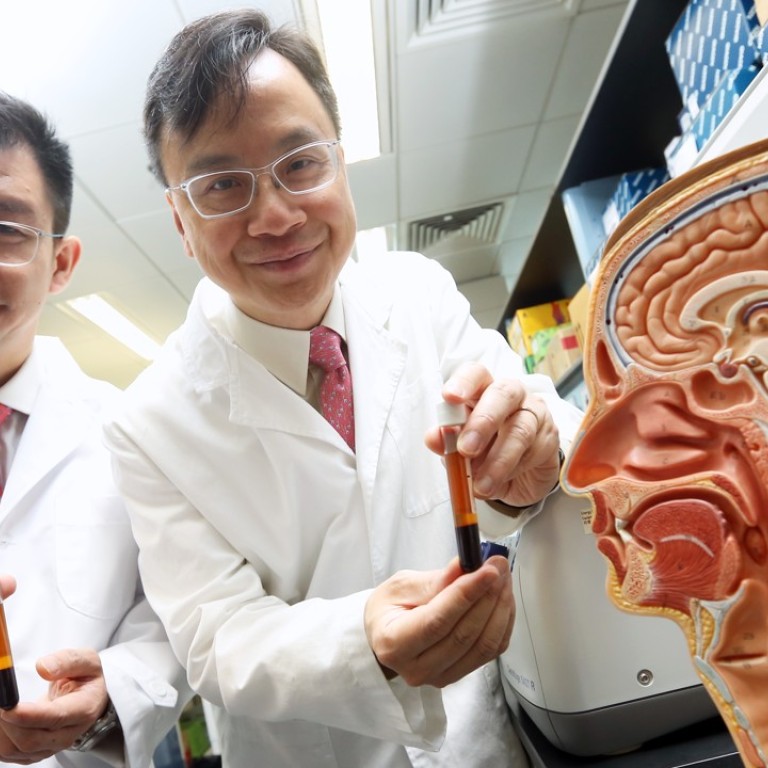
New blood test could help save patients with hard-to-spot type of head and neck cancer, Chinese University says
Screening using plasma DNA analysis could lead to early diagnosis of nasopharyngeal carcinoma, a lump at the upper throat
A breakthrough blood test by Hong Kong scientists could lead to the discovery of a hard-to-detect type of head and neck cancer at a significantly earlier stage, potentially saving lives, Chinese University announced on Thursday.
Researchers, in a study involving 20,000 people, identified a plasma DNA analysis method to catch Epstein-Barr virus (EBV) infection, a leading cause of nasopharyngeal carcinoma, a lump at the upper throat behind the nose.
Currently the majority of nasopharyngeal carcinoma patients are diagnosed at a late stage without an accurate screening for EBV, resulting in a five-year survival rate of less than 70 per cent for patients at stage three or worse. By detecting the cancer early at stage 1 or 2, the five-year survival rate can be increased to 90 per cent.
“I hope the number of people dying of nasopharyngeal carcinoma in China will drop significantly after the screening is widely available and ultimately make it a rare case to die of this cancer,” the university’s chairman of chemical pathology, Professor Dennis Lo, said.
Hong Kong’s first cancer centre to provide advanced treatments for city’s biggest killer
Nasopharyngeal cancer is relatively asymptomatic in its earlier stages. At a more advanced stage, symptoms include blood in saliva, hearing loss, frequent ear infections and headaches.
Some 830 cases of nasopharyngeal carcinoma are recorded in the city every year, making it the 10th most common cancer overall and the sixth most common for men. There are up to 35 cases per 100,000 people among middle-aged males in endemic areas such as Asia.
Lo said he hoped the screening procedure would be used widely in three years. The cost of each blood test conducted by the university is about HK$240, but Lo was unable to provide an estimate of the market price.
The screening part of the study was conducted between 2013 and 2016, with 20,174 participants aged between 40 and 60 enrolled.
Among them, 309 participants – or 1.5 per cent – were found to “persistently” carry the virus, and 34 were diagnosed with nasopharyngeal carcinoma.
University of Hong Kong scientists reveal new ultra-fast laser technology that could slash cancer diagnosis times
Of this group, 16 were found to be at stage one, eight each at stage two and three and two at stage four – the most serious.
Lo said not every case of EBV infection would develop into cancer, but patients testing positive should undergo further regular testing for the tumour.
Other than EBV, genetic and environmental factors such as eating nitrosamines – a group of often carcinogenic chemical compounds – in salted fish can also contribute to the development of the carcinoma.
All sufferers can be screened under the new method, which provides a more accurate result than the traditional antibody test. The latter often leads to abnormal results as very few or no EBV antibodies are found in early stages.
“The test is sensitive enough to detect even a small tumour, as it could release a sufficient amount of tumour DNA into the blood, allowing early detection,” Lo said.

